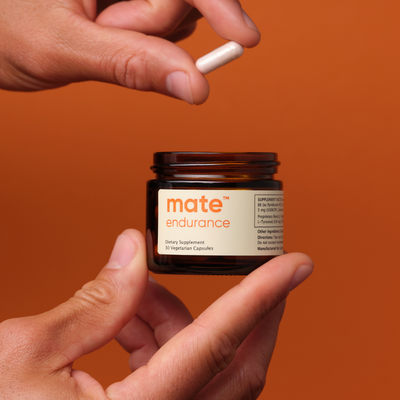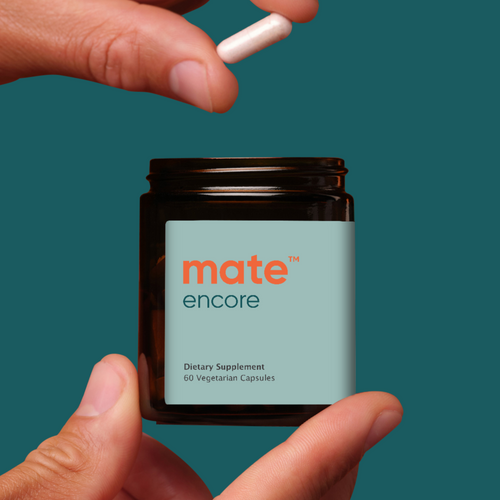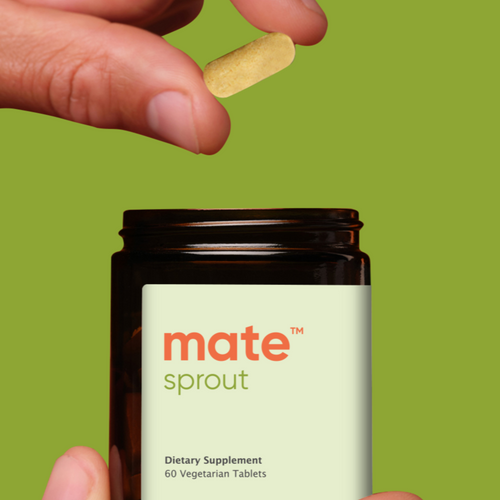Premature Ejaculation 101: Answering All Your Questions
We’ve heard it said in many different ways: cumming too fast, ejaculating too fast, nutting too fast. But what does it really mean? How fast is too fast? What causes premature ejaculation? How do I know if I have premature ejaculation? What are some steps I can take to prolong ejaculation?

These questions often go unanswered, because most people think premature ejaculation is just something they have to put up with. Well, you don’t have to put up with it–and you shouldn't. If you want longer lasting sex, if you want to increase stamina, if you want to satisfy both yourself and your partner, then you need to seek out the causes of premature ejaculation and work towards a premature ejaculation treatment that works for you.
Fortunately, you’ve come to the right spot, because we’ve got the answers for you.
What Does it Mean to Have Premature Ejaculation?
Premature ejaculation (also known as rapid ejaculation, rapid climax, premature climax, or early ejaculation) is when a man is not able to control the timing of his orgasm, leading him to ejaculate before his desired completion.
This can often be within the first minute of having sex, or in some instances, even before penetration has occurred. Most men have been there before. One thrust, two thrusts, three thrusts, and just a couple more thrusts, and you’re done. You’ve cum just as you felt you were getting started.
Concern about one’s timing in bed on a one-off basis is a normal occurrence, given there are always variable factors at play. For example, a certain type of sexual position may get you more aroused than another position. Or you may just perform better in a certain environment, whether that’s a bedroom in which you’re familiar with or in a hotel room while relaxing on vacation. Having one off sub-par sexual experiences is not really a sign of premature ejaculation. However, consistently and frequently achieving the point of orgasm much earlier than one desires is the most prevalent factor related to premature ejaculation.
How Common is Premature Ejaculation?
Cumming too fast can often lead to frustration and embarrassment, however men cumming too fast is a widespread issue, as it affects nearly 40% of men at one point in their lives. In fact, it’s the most common male sexual dysfunction. As a result of the stress and anxiety caused by premature ejaculation, certain individuals avoid sexual encounters altogether. Avoiding sexual intimacy due to fears of underperformance and an inability to satisfy one’s partner due to lack of control over the timing of one’s ejaculation is another signal of premature ejaculation.
What Causes Premature Ejaculation?
While it’s tough to pinpoint the precise causes of premature ejaculation, there are a variety of factors at play that contribute to men’s inability to last as long as they’d like in bed.
Some of the causes of premature ejaculation include depression, stress, lack of confidence and anxiety in performance, relationship problems, or physiological problems, such as an insufficient production of serotonin. All these factors work together and serve as the underlying causes of premature ejaculation.
For example, if you’re going into sex frustrated and stressed after a long day of work, that will likely negatively affect your performance in bed, preventing you from lasting longer in bed. Additionally, if you’re having sex with someone and you’re not on the best terms (i.e. you just had a fight), that may negatively affect your performance, resulting in ejaculating too quickly. Additionally, simply being in a new relationship or not having engaged in sexual intercourse in a while could also increase one’s likelihood of premature ejaculation.
It can often be difficult to pinpoint any cause of premature ejaculation in isolation, but instead, it’s often a variety of issues that work together that prevent you from having longer lasting sex.
Solutions to Premature Ejaculation
Fortunately, there are solutions on how to go longer in bed that require minimal lifestyle change but will contribute to a significant lifestyle impact (i.e. better sex… because who wouldn’t want better sex). First of all, talk it out with your partner. Communication is one of the keys to better and longer lasting sex. If both you and your partner clearly articulate what you’re looking for out of the sexual experience, you’re both more likely to enjoy the sexual experience. For example, adding additional elements of foreplay to the sexual experience could go a long way in increasing the time of the experience overall.
Communicating your concerns or anxieties outside of the bedroom could help alleviate them inside of the bedroom, as you sort them out with your partner before getting under the sheets. Leave your frustrations and stress outside of the bedroom. While you may have had a rough day at work, don’t bring that stress with you into the bedroom. Leave it outside and deal with it later. It’s important for you to fully enjoy and appreciate the moment so that you can last longer in bed. Bringing that stress in with you prevents you from fully focusing on the moment, and those distractions and frustrations can often lead to worsened sexual performance. By fulling enjoying the moment for what it is, you’re likely to enjoy longer lasting sex and delayed orgasms.
One way of leaving that stress and anxiety at the door is through meditation. By simply sitting in silence for ten minutes, by yourself, prior to your sexual experience, you can bring zen to yourself and achieve a sense of inner peace heading into sex. For maximum effectiveness, make that daily dose of meditation a habitual activity, even when you’re not planning to have sex that night. Bringing a sense of calmness and serenity to your daily life can end up paying tremendous dividends throughout facets of your life.
A More Natural Approach to Premature Ejaculation
Oftentimes, physiological issues are at work that simply prevent you from achieving the staying power that you’d like. As such, exploring natural medications can also be an effective means of treating PE.
While there are expensive, prescription medications such as Sertraline (Zoloft) that are used to “treat” premature ejaculation, these pills come with a whole host of negative side effects. As such, it’s best to explore natural alternatives whenever possible. mate endurance is an example of a natural dietary supplement intended to address premature ejaculation. Ingredients in the supplement such as L-Citrulline, niacin and tribulus improve blood flow and increase libido, while 5-HTP increases ones staying power and ability to last longer through the increased presence of serotonin in the brain.
Get the Conversation Started
Premature ejaculation is often a taboo subject, but there really is no reason for it to be. It affects millions of men around the world and is the most common form of sexual dysfunction amongst men. If you feel as though your sexual encounters leave you more distressed and frustrated as opposed to satisfied, learning about the causes of premature ejaculation as well as the solutions to premature ejaculation is an important first step. By reading this blog, you are one step closer. Premature ejaculation is not something that is dealt with overnight, but takes time and patience to fix. However, the good news is that it can be fixed, and when fixed, can lead to more intimate, enjoyable, longer-lasting sexual experiences. And after all, who doesn’t want longer lasting sex?
This article is for informational purposes only and does not constitute medical advice. The information contained herein is not a substitute for and should never be relied upon for professional medical advice. Always talk to your doctor about the risks and benefits of any treatment.















